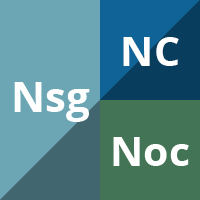
Chemotherapy for children with medulloblastoma
Abstract Background Post-surgical radiotherapy (RT) in combination with chemotherapy is considered as standard of care for medulloblastoma in children. Chemotherapy has been introduced to improve survival and to reduce RT-induced adverse effects. Reduction of RT-induced adverse effects was achieved by deleting (craniospinal) RT in very young children and by diminishing the dose and field to […]

Non-pharmaceutical management of respiratory morbidity in children with severe global developmental delay
Abstract Background Children with severe global developmental delay (SGDD) have significant intellectual disability and severe motor impairment; they are extremely limited in their functional movement and are dependent upon others for all activities of daily living. SGDD does not directly cause lung dysfunction, but the combination of immobility, weakness, skeletal deformity and parenchymal damage from […]

Tricyclic antidepressants for attention deficit hyperactivity disorder (ADHD) in children and adolescents
Abstract Background Attention deficit hyperactivity disorder (ADHD) is a chronic neurodevelopmental disorder of childhood onset, which may persist into adulthood. ADHD has a significant impact on a child’s daily life, affecting relationships and academic performance. Its core symptoms include developmentally inappropriate levels of inattention, hyperactivity, and impulsive behaviour. Tricyclic antidepressants (TCAs) are sometimes used as […]

Interventions for congenital talipes equinovarus (clubfoot)
Abstract Background Congenital talipes equinovarus (CTEV), which is also known as clubfoot, is a common congenital orthopaedic condition characterised by an excessively turned in foot (equinovarus) and high medial longitudinal arch (cavus). If left untreated it can result in long-term disability, deformity and pain. Interventions can be conservative (such as splinting or stretching) or surgical. The […]
Psychological therapies for the management of chronic and recurrent pain in children and adolescents
Abstract Background This is an update of the original Cochrane review first published in Issue 1, 2003, and previously updated in 2009 and 2012. Chronic pain affects many children, who report severe pain, disability, and distressed mood. Psychological therapies are emerging as effective interventions to treat children with chronic or recurrent pain. This update focuses […]

Interventions based on the Theory of Mind cognitive model for autism spectrum disorder (ASD
Abstract Background The ‘Theory of Mind’ (ToM) model suggests that people with autism spectrum disorder (ASD) have a profound difficulty understanding the minds of other people – their emotions, feelings, beliefs, and thoughts. As an explanation for some of the characteristic social and communication behaviours of people with ASD, this model has had a significant […]

Fundoplication versus postoperative medication for gastro-oesophageal reflux in children with neurological impairment undergoing gastrostomy
Abstract Background Children with neurological impairments frequently experience feeding difficulties, which can lead to malnutrition and growth failure. Gastrostomy feeding is now the preferred method of providing nutritional support to children with neurological impairments who are unable to feed adequately by mouth. Complications may arise as a result of gastrostomy placement, and the development or […]

High-dose chemotherapy and autologous haematopoietic stem cell rescue for children with high-risk neuroblastoma
Abstract Background Despite the development of new treatment options, the prognosis of high-risk neuroblastoma patients is still poor; more than half of patients experience disease recurrence. High-dose chemotherapy and haematopoietic stem cell rescue (i.e. myeloablative therapy) might improve survival. This review is an update of a previously published Cochrane review. Objectives The primary objective was […]

Postnatal phenobarbital for the prevention of intraventricular hemorrhage in preterm infants
Abstract Background Intraventricular haemorrhage (IVH) is a major complication of preterm birth. Large haemorrhages are associated with a high risk of disability and hydrocephalus. Instability of blood pressure and cerebral blood flow are postulated as causative factors. Another mechanism may involve reperfusion damage from oxygen free radicals. Phenobarbital has been suggested as a safe treatment […]

Gastrostomy feeding versus oral feeding alone for children with cerebral palsy
Abstract Background Children with cerebral palsy can be significantly disabled in terms of their ability to suck, chew and swallow. This can lead to significant impairment in feeding and, eventually, to undernutrition. It can also result in aspiration of food into the lungs. Length of feeding time may be considerably increased and, instead of being […]

